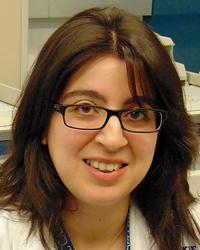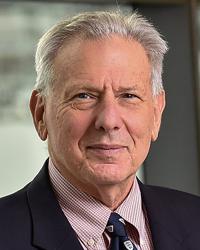Research Lab Results
-
Jonathan Walsh Lab
The Jonathan Walsh Lab is currently researching longitudinal trends of diagnostic and procedural utilization in pediatric patients with head and neck complaints.
-
Pediatric Cerebral Palsy and Epilepsy Lab
The team headed by Shenandoah “Dody” Robinson, M.D., professor of neurosurgery, neurology and pediatrics, studies perinatal brain injury and repair. Employing developmentally age-appropriate models, the lab investigates neurological consequences of extremely preterm birth, including cerebral palsy, chronic pain, cognitive and behavioral impairment, epilepsy and posthemorrhagic hydrocephalus of prematurity. -
ALS Center
The ALS Center for Cell Therapy and Regeneration Research at Johns Hopkins is committed to identifying the causes of the neurodegenerative disease, amyotrophic lateral sclerosis (ALS), and discovering new and effective treatment options. At the ALS Center, Johns Hopkins researchers work with other investigators, including those at the Robert Packard Center for ALS Research at Johns Hopkins and clinicians within the Johns Hopkins ALS Clinic to aggressively take groundbreaking scientific discoveries and turn them into clinical applications that will improve the quality of life of those diagnosed with ALS. -
HPTN (HIV Prevention Trials Network) Network Lab
HPTN (HIV Prevention Trials Network) Network Laboratory (NL) is responsible for collecting, testing and reporting results from biological samples; assisting in the development and quality assurance assessment of local laboratory capacity at the Clinical Trials Units (CTUs) participating in HPTN clinical trials (www.hptn.org); and identifying and implementing state-of-the-art assays and technologies to advance the scientific agenda of the Network. -
Molecular Oncology Laboratory
Our Molecular Oncology lab seeks to understand the genomic wiring of response and resistance to immunotherapy through integrative genomic, transcriptomic, single-cell and liquid biopsy analyses of tumor and immune evolution. Through comprehensive exome-wide sequence and genome-wide structural genomic analyses we have discovered that tumor cells evade immune surveillance by elimination of immunogenic mutations and associated neoantigens through chromosomal deletions. Additionally, we have developed non-invasive molecular platforms that incorporate ultra-sensitive measurements of circulating cell-free tumor DNA (ctDNA) to assess clonal dynamics during immunotherapy. These approaches have revealed distinct dynamic ctDNA and T cell repertoire patterns of clinical response and resistance that are superior to radiographic response assessments. Our work has provided the foundation for a molecular response-adaptive clinical trial, where therapeutic decisions are made not based on imaging but based on molecular responses derived from liquid biopsies. Overall, our group focuses on studying the temporal and spatial order of the metastatic and immune cascade under the selective pressure of immune checkpoint blockade with the ultimate goal to translate this knowledge into “next-generation” clinical trials and change the way oncologists select patients for immunotherapy.
-
Philip Wong Lab
The Philip Wong Lab seeks to understand the molecular mechanisms and identification of new therapeutic targets of neurodegenerative diseases, particularly Alzheimer's disease (AD) and amyotrophic lateral sclerosis (ALS). Taking advantage of discoveries of genes linked to these diseases (mutant APP and PS in familial AD and mutant SOD1, dynactin p150glued ALS4and ALS2 in familial ALS), our laboratory is taking a molecular/cellular approach, including transgenic, gene targeting and RNAi strategies in mice, to develop models that facilitate our understanding of pathogenesis of disease and the identification and validation of novel targets for mechanism-based therapeutics. Significantly, these mouse models are instrumental for study of disease mechanisms, as well as for design and testing of therapeutic strategies for AD and ALS. -
Anna Durbin Lab
The Anna Durbin Lab evaluates experimental vaccines through human clinical trials. We have conducted both pediatric and adult clinical trials on vaccines for HIV, hepatitis C, HPV, influenza, malaria, dengue virus, rotavirus and other viruses. We also have a longstanding interest in better understanding the immunologic factors of dengue infection and disease. We’re working to identify the viral, host and immunologic factors that cause severe dengue illness. -
Jeremy Greene Lab
Research in the Jeremy Greene Lab focuses on the history of disease and the ways that medical technologies affect our understanding of what it means to be sick, healthy, normal or abnormal. Particular areas of interest include 20th century clinical medicine, pharmaceuticals, medical technology, medical anthropology and global health. -
Charles Wiener Lab
The Charles Wiener Lab primarily conducts research on pulmonary circulation and hypoxia as well as respiratory muscle function in patients with neuromuscular diseases. Our recent studies have included investigating the treatment of pericardial effusions in patients with pulmonary arterial hypertension and examining the use of non-invasive ventilation in patients with amyotrophic lateral sclerosis (ALS). We also have an interest in medical education research. Our work in this area has included reviewing the role of academic medical centers in emerging health care markets.
-
Charles Wiener Lab
The Charles Wiener Lab primarily conducts research on pulmonary circulation and hypoxia as well as respiratory muscle function in patients with neuromuscular diseases. Our recent studies have included investigating the treatment of pericardial effusions in patients with pulmonary arterial hypertension and examining the use of non-invasive ventilation in patients with amyotrophic lateral sclerosis (ALS). We also have an interest in medical education research. Our work in this area has included reviewing the role of academic medical centers in emerging health care markets.






